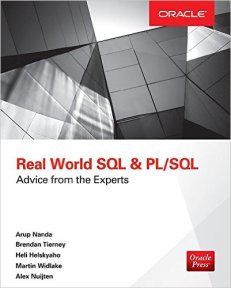Friday Philosophy – The power of cooperation June 27, 2010
Posted by mwidlake in Friday Philosophy, Perceptions, performance.Tags: behaviour, perception, performance
3 comments
Being the person responsible for the performance of an Oracle-based system can be an oddly lonely working experience. It can also be a very gregarious position as you get to meet a lot of people and discuss lots of different aspects of many systems – all systems seem to have performance issues and so people come along to you, hoping you can identify a “work faster” database setting for them.
But you are often the only person who specialises in Oracle performance. You generally need to be in an organisation that is very large or where performance is key to success for there to be justification for dedicating a person to the topic. To have more than one person dedicated to performance your organisations has to have a very strong focus on getting the best performance out of the Oracle and related systems {or really, really atrocious performance issues 🙂 }. So usually there is no one else around who is as experienced (or more so) as yourself to discuss such things over with or ask for a second opinion.
Which is why I am very lucky at the moment. I’m working in a team of oracle performance people. There are 2.5 of us (one is a manager with other responsibilities, so he only counts as half). Being able to say “Hey, Dave, What do you think of the wait times on scattered reads?” or “how in heck do I force this nested subquery on a view to use a hash join?” and get some other ideas is very valuable.
What is also interesting is how opinions and preferred techniques on tuning can be different and just as valid. As an example, last week I was working on a poorly performing statement. I was at home and it was the evening, so I was not communicating with the rest of the team. I managed to get the code down from 40 minutes to just under 20 by using a combination of a LEADING and USE_HASH hint. I sent the code back to the user. Only to see that within thirty seconds of each other my colleague Graeme had also sent the user a response, again getting the code down to around 20 minutes. Graeme had pulled a chunk of the code into a subquery factoring “WITH” clause and added cardinality hints. Totally different changes.
So Graeme and I then had a “philosophical” discussion about the different changes {“Mine is best” – “No! Mine is, yours is all bloated and complex”- “Your hint is less future-flexible!!!”}. Only joking, we actually discussed the changes and why we each chose what we did. Graeme commented that is showed that tuning was an art and not a science and I countered that it was a science, as we had both identified where we felt the execution plan could be improved but used different techniques to get there. The thing is, Oracle is so complex and has so many options to influence the optimiser that you have flexibility to chose different tools and techniques.
We had both identified the same main improvement but had each come up with different tweaks for later in the plan.
The end result was that we went with Graeme’s main plan {he is bigger than me} but we pulled in my tweak. That bought the execution time down to around 10 minutes, so about four times faster over all and twice as fast of either of us alone. That is one of the advantages of not working alone.
We also then discussed how we could get this code down to seconds with the use of either Materialized views or changing the process that generated the report to do so incrementally and store the daily results. Until one of us realised we had reached the boundary of compulsive tuning disorder. The report running in 10 minutes was enough improvement to satisfy the business, the report was only going to be run over the next couple of months, so spending a day or two re-working it further was going to be fun – but of no advantage to the business. We told each other to finish for the day. So another advantage of not working alone is that not only do you get more technical input but your help prevent each other losing sight of the overall aim.
It really does help to have two people working on the same area.
{There is a sneaky way of getting beyond being a lone performance specialist. If you are in an organisation long enough you can usually find some other idiot who is silly enough to want to learn more about performance and you can train them up. It does not take long before they know enough to start coming up with things you never thought of. Oracle is, after all, full of many ways to do the same thing and you can’t know it all}.

